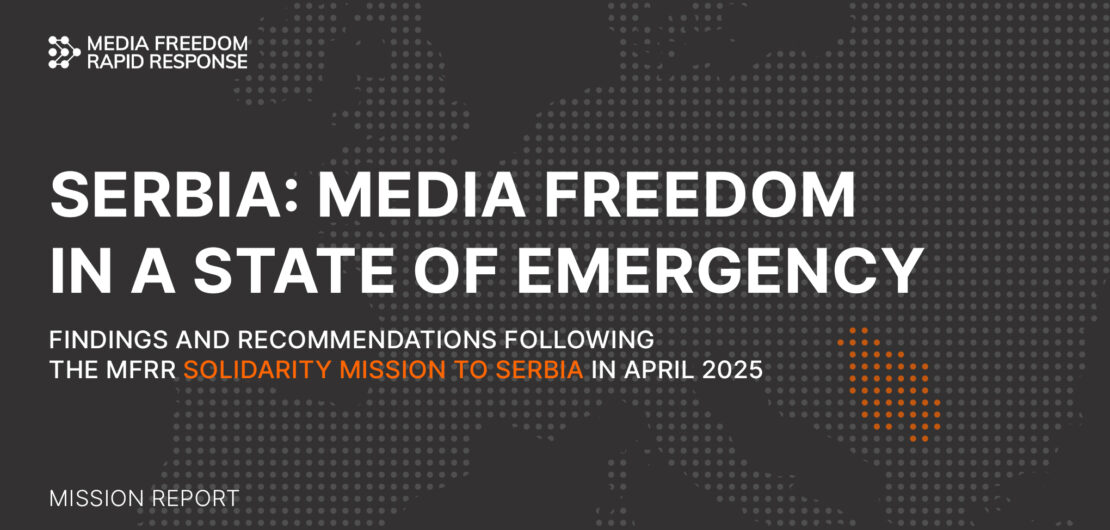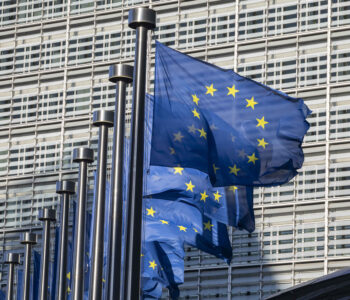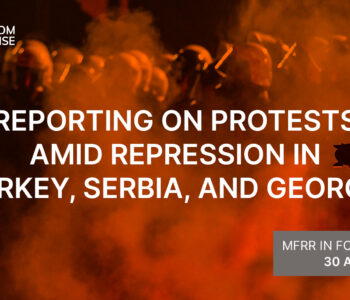 Allgemein
Allgemein
Serbia: Media freedom in a state of emergency –…
Serbia: Media freedom in a state of emergency – New report
On the eve of World Press Freedom Day, the Media Freedom Rapid Response (MFRR) today shares alarming findings about the deteriorating state of press and media freedom in Serbia. The MFRR solidarity mission to Belgrade and Novi Sad, conducted on 7-9 April, alongside ongoing monitoring, revealed a state of emergency – one that demands urgent attention and action from national authorities and the EU.
2 May 2025
Although the media freedom crisis has persisted for years, the reporting of the deadly collapse of the Novi Sad canopy railway has led to ever-increasing pressure on journalists across Serbia, including young media professionals and journalism students.
From censorship, political pressure, increasing media capture, relentless smear campaigns, and abusive lawsuits and daily threats to their lives, media workers face a hostile environment where perpetrators – including state authorities and government officials – act with total impunity. Investigations into threats, when opened, are rarely efficient, let alone concluded, and serve more as box-ticking exercises than genuine efforts to deliver justice and protect journalists.
Prevented from carrying out its normal work, the press has been forced to focus on surviving relentless attacks, resisting discrediting efforts, and suppression, to the detriment of the citizens’ right to free and unbiased information.
During the solidarity mission, the MFRR partners focused on meeting with journalists from both private and state-owned outlets, as well as trade unions and civil society groups. The delegation also met with officials from the State Attorney’s Office and the Serbian police, as well as representatives from the European Union (EU) office in Belgrade, the Council of Europe (CoE), and the Organisation for Security and Cooperation in Europe (OSCE).
Amid the MFRR findings are serious omissions by the Serbian authorities regarding the protection of journalists, which are irreconcilable with the protection of freedom of expression as prescribed by the European Convention on Human Rights (ECHR) and the benchmarks set as part of the accession negotiations concerning Chapter 23 (Judiciary and fundamental rights).
Key recommendations to Serbian authorities, including the President of Serbia, include:
- Cease and condemn all public attacks on the media and journalists
- Cease all illegal police actions against the media, including office raids
- Cease the illegal use of spyware against journalists and civil society
- Ensure law enforcement training
- Ensure a thorough and swift investigation into the attacks on media and journalists, including the historic murders
- Ensure the new process for appointing members of the REM Council is conducted in a fair, independent and transparent process, free from political influence.
- Ensure the independence of the public broadcaster
To the European Union:
- Publicly condemn all attacks on journalists and civil society actors who receive threats, physical attacks, and legal threats as a result of their work
- Publicly and consistently question Serbian authorities about the status of investigations into attacks against journalists
- Publicly condemn the unlawful digital surveillance and use of spyware against journalists and CSOs and raise those in high-level meetings with senior officials, including the President of Serbia
- Consider suspending negotiations with Serbian authorities on Chapter 23 (Judiciary and fundamental rights) of the EU accession process until substantial and sustained reforms are made regarding media freedom, media pluralism, and the safety of journalists.
The Media Freedom Rapid Response stands ready to participate in public consultations and support efforts to strengthen media freedom in Serbia.
The mission was led by the European Federation of Journalists (EFJ), and was joined by representatives from ARTICLE 19 Europe, the European Centre for Press and Media Freedom (ECPMF), Free Press Unlimited (FPU), International Press Institute (IPI), and the Osservatorio Balcani e Caucaso Transeuropa (OBCT). It was coordinated with support from the Independent Journalists’ Association of Serbia (NUNS).
The report was produced as a joint effort by all organisations which took part in the mission.














